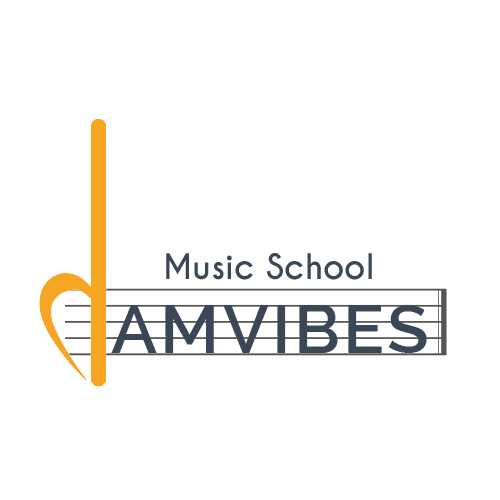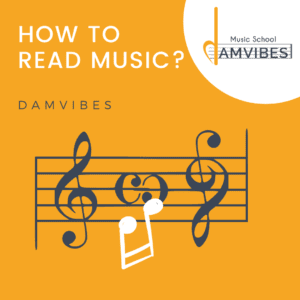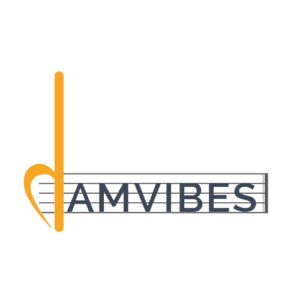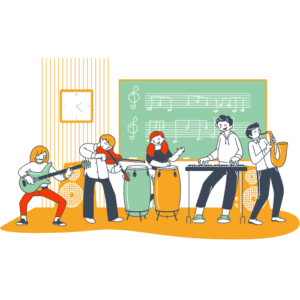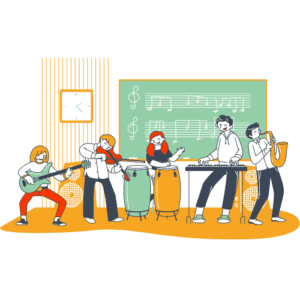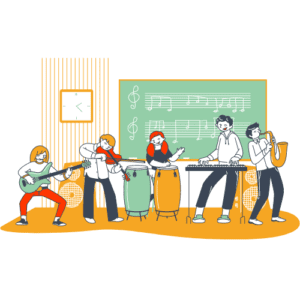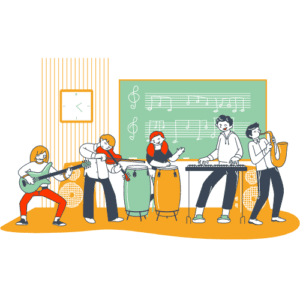Introduction to Music Sheet reading:
If you want to learn music or music theory one of the most important things you need to do is learning how to read notes, this way you will learn how to play faster your songs, pieces and all this music sheets you love!
1- How to read sheet music for beginners
Today, we are going to learn how to read music notes. Why? Music requires writing and reading skills, same as we do with spoken languge and, as you can imagine, it has an alphabet, it has letters, words, phrases and, if you understand these concepts your music learning process will automatically speed up in almost no time. That’s why in our music schools we always recommend study music theory and solfege. And not only that. Whoever that knows this music language will be able to communicate with every single person in this planet, musically speaking!
2- Name of music notes
Learning the music notes will make you learn the music alphabet, and, luckily for us, they are expressed with letters: A, B, C, D, E, F and G but written with “circles” or “music notes” in a “music staff”. Remember that these are the only 7 music notes that exists in music. They work like a series, and as such, after we get to the end of this series, we just start over. As you can already imagine, there are infinite number of A, infinite number of B. For example, the central G is called G3, the one above is called G4 and so on.
The music symbol in music sheets
The music symbol is used to express sounds (A, B, C, etc.)

3- What is "music staff" in a music sheet?
A music staff is group of 5 lines that forms also 4 spaces.
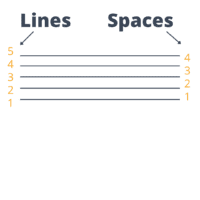
4- The Treble Clef: Placed at the beginning of the music score
The clef is a symbol that is placed at the beginning of the staff and determines the name of the notes that are going to be located on those lines and spaces. Let’s be clear, there are different clefs that we are not going to talk about now but, just for you to know, the Treble clef, also called the G Clef is used to write or read most-used notes; notes that cover one specific range of notes, according to its height (or frequency in Hz’s). There are other clefs that cover other range of notes, for example, Bass Cleff (or F Clef) that covers the lower notes. The Treble Clef, naturally is the most used clef as it covers most of the notes of a melody; the most important part in music.
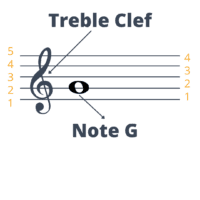
It is also called G Clef because that symbol is actually the letter G (very well decorated) and is placed on the second line, thus, the note G will be placed always in the second line.
How do we write the rest of the music notes?
And, from this G, we can place the rest of the notes on the lines and spaces from below and above. For example, if we want to write the A, we will write it on the second space, the B on the third line, and so on. And going towards the bottom, the F will be placed on the first space, the E on the first line, etc. And how do we continue?What do we do with the C and the D?
5- The leger lines in a music sheet
Obviously, we cannot put all the sounds or notes in the world(imagine the 88 keys or sounds of a piano) in only five lines and four spaces, That’s why, we have to go out somehow from those five lines. How? With leger lines
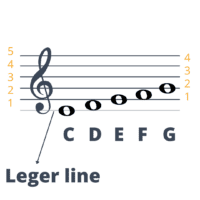
You can add as many leger lines as you want…
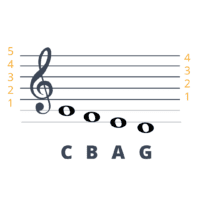
…but at some point there will be a bit too many lines for us to read easily, that’s why we have the Bass Clef (or F clef), so we can read lower notes easily.
6- Bass Clef Notes Names
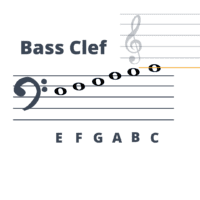
7- What about super high notes?
In music we have literally an infinite number of notes and sounds, some not perceived by human ear, but even so, there are super high notes that human can hear and should know how to write. Don’t worry, super high notes, or super low notes, even those written beyond the staff are super easy to write by simply add a “8va symbol”.
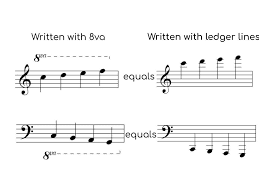
If you want to find sheet music with notes especially in classical music we recommend you to take a look at this music sheet directory.
